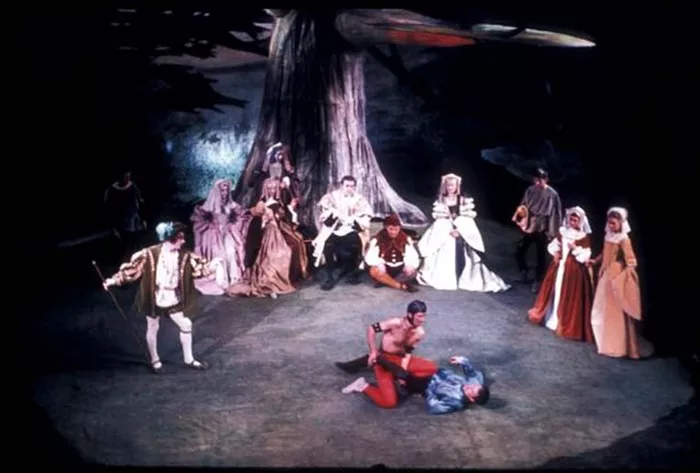British history is a tapestry woven with the threads of countless events, each contributing to the rich and diverse narrative of the nation’s past. Among the many dates that adorn the historical calendar, May 25 stands out as a day marked by significant occurrences that have left an indelible imprint on the fabric of British society. From moments of political upheaval and social change to milestones in exploration and innovation, the events of May 25 offer valuable insights into the evolution of the United Kingdom. In this article, we embark on a journey through time to explore the noteworthy events that have unfolded on May 25, shedding light on their enduring impact and relevance in British history.
The events of British May 25
The Restoration of Charles II (1660)
May 25, 1660, marked a pivotal moment in British history with the restoration of Charles II to the throne following the collapse of the Commonwealth under Oliver Cromwell’s rule. The Restoration brought an end to the tumultuous period of the English Civil War and the Interregnum, restoring the monarchy and the Stuart dynasty to power. Charles II’s reign ushered in a period of political stability and cultural resurgence known as the Restoration era, characterized by a revival of the arts, literature, and theater.
The First British Everest Expedition Reaches Summit (1953)
May 25, 1953, witnessed a historic moment in British exploration with the first successful ascent of Mount Everest, the world’s highest peak. Led by Colonel John Hunt, a British expedition team, which included Sir Edmund Hillary of New Zealand and Tenzing Norgay, a Sherpa of Nepal, reached the summit of Everest, standing at an elevation of 29,029 feet (8,848 meters). The achievement captured the imagination of the world and symbolized the triumph of human endeavor and perseverance in the face of formidable challenges.
The Birth of Ian McKellen (1939)
On May 25, 1939, acclaimed British actor Sir Ian McKellen was born in Burnley, Lancashire. McKellen’s illustrious career spans stage and screen, with iconic performances in Shakespearean plays, classic dramas, and blockbuster films. From his portrayal of Gandalf in “The Lord of the Rings” and “The Hobbit” film trilogies to his acclaimed stage roles in “Macbeth” and “King Lear,” McKellen has earned widespread acclaim and accolades for his versatility and talent, cementing his status as one of Britain’s most esteemed actors.
The Opening of the Great Exhibition in Crystal Palace (1851)
May 25, 1851, marked the opening of the Great Exhibition in the Crystal Palace, a monumental glass and iron structure erected in Hyde Park, London. Organized by Prince Albert and the Royal Society for the Encouragement of Arts, Manufactures and Commerce, the Great Exhibition showcased the achievements of industry and culture from around the world. The Crystal Palace, with its innovative design and grandeur, became a symbol of Victorian Britain’s industrial and imperial prowess, attracting millions of visitors during its six-month run.
The Founding of the Royal Shakespeare Company (1961)
On May 25, 1961, the Royal Shakespeare Company (RSC) was founded in Stratford-upon-Avon, Warwickshire. The RSC, established to perform the works of William Shakespeare and other classical playwrights, has become one of Britain’s premier theater companies, renowned for its innovative productions and stellar performances. With its home base at the Royal Shakespeare Theatre in Stratford-upon-Avon, the RSC continues to celebrate Shakespeare’s legacy and promote the art of theater both nationally and internationally.
The Death of Gilbert Keith Chesterton (1936)
May 25, 1936, marked the passing of British writer and philosopher G.K. Chesterton in Beaconsfield, Buckinghamshire. Chesterton, known for his wit, humor, and prolific literary output, made significant contributions to British literature and public discourse. His works, including the “Father Brown” mystery stories and the philosophical treatise “Orthodoxy,” continue to resonate with readers and scholars, reflecting his keen insight into human nature, society, and spirituality.
The Birth of Sir Ian Fleming (1908)
On May 25, 1908, British author Ian Fleming was born in London, England. Fleming is best known for creating the iconic character of James Bond, the suave and sophisticated secret agent known as 007. Fleming’s James Bond novels, beginning with “Casino Royale” in 1953, have captivated readers worldwide with their thrilling espionage plots, exotic locales, and larger-than-life villains. The James Bond franchise, which has spawned numerous films, books, and cultural adaptations, remains an enduring symbol of British popular culture.
Conclusion
May 25 stands as a significant date in British history, bearing witness to a diverse array of events that have shaped the nation’s identity and trajectory. From moments of political restoration and cultural innovation to achievements in exploration and literature, the events of this date offer a window into the complexities and dynamism of British society. As we reflect on the significant occurrences that have unfolded on May 25, we gain a deeper appreciation for the diverse tapestry of Britain’s past and the enduring legacy of its people.

